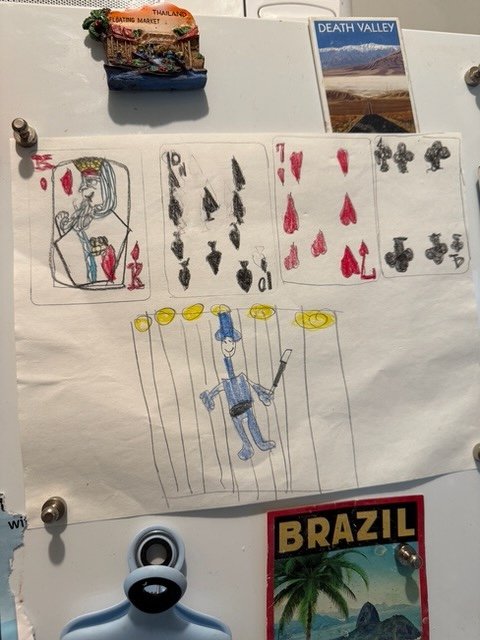RAP: The Gentle Sucker Trick
/This is an idea in the Rehearsal As Presentation series.
It’s a concept I call “gentle sucker” tricks.
I think sucker tricks in casual/social situations come off as profoundly corny.
The worst part about magic is that people feel “set up” by it, and it can make them feel dumb. Sucker tricks are intended to emphasize these two things.
This was an idea I had years ago in an email conversation with Joe Mckay. The trick we were discussing was something like this…
You open a briefcase on your table, and you tell your friend that inside you have a deck of cards. You ask them to name any card. You look into your case and after a moment you remove a deck of cards. You spread the deck to show them all the cards are blue, except the one card they named is red.
With a little thought, your friend might rightly assume you have more than one deck of cards in the briefcase. In fact, you might have one for every possibility.
You admit they’re right and that you do have 52 decks in the case. You turn the briefcase around to show them it’s full of decks of cards.
But then you tip it over to show all the card cases are empty.
This is pretty classic Sucker Trick structure (using a single Brainwave deck). And while I’m not suggesting this sort of thing will piss people off or upset them, I do think it plays into the “this is me vs you, and I’m going to show I’m smarter than you” element of magic which is the least attractive part of it.
But let’s filter the same trick through the Rehearsal As Presentation concept.
You tell your friend that you’re part of a group of magicians who get together and try to fool each other. “Can I test something out on you? I want to see how fooling it is.” Just this slight twist is already a more compelling premise than, “Let me try and fool you.”
But now, let’s continue forward. You do the trick. You bring out the blue deck with one red card that happens to be the card they named.
“Do you think that will fool them? Or do you have some idea of how it works?”
“Well, can I look in the briefcase?”
“Uhm…. so you think they’ll want to look in the briefcase?”
“Yeah, I would. They probably will too.”
“Oh boy…. that’s not good,” you say, and slowly turn the case around to show it’s loaded with decks. “52 decks. Busted.”
Your friend will likely find this amusing.
“But actualy,” you say, conspiratorially. “That’s just what I want them to think.” Then you tip over the briefcase to show all those cases are empty.
It still has the sucker element to it, but now they’re on your side. They’re still fooled by the trick, and still taken in by the twist. But now they’re playing a part in helping you test how “fooling” this trick is. It’s a subtle change, but they no longer feel like “the mark.” In fact, when I’ve used this structure on other “sucker” type tricks, I find that the more “duped” they feel, the more they like it.
It’s like getting a peek behind a prank that’s about to occur. Sucker tricks have a “prankish” feel to them. But instead of them feeling like they were mainpulated, they’re getting an insider look at how you are planning to manipulate someone else.








